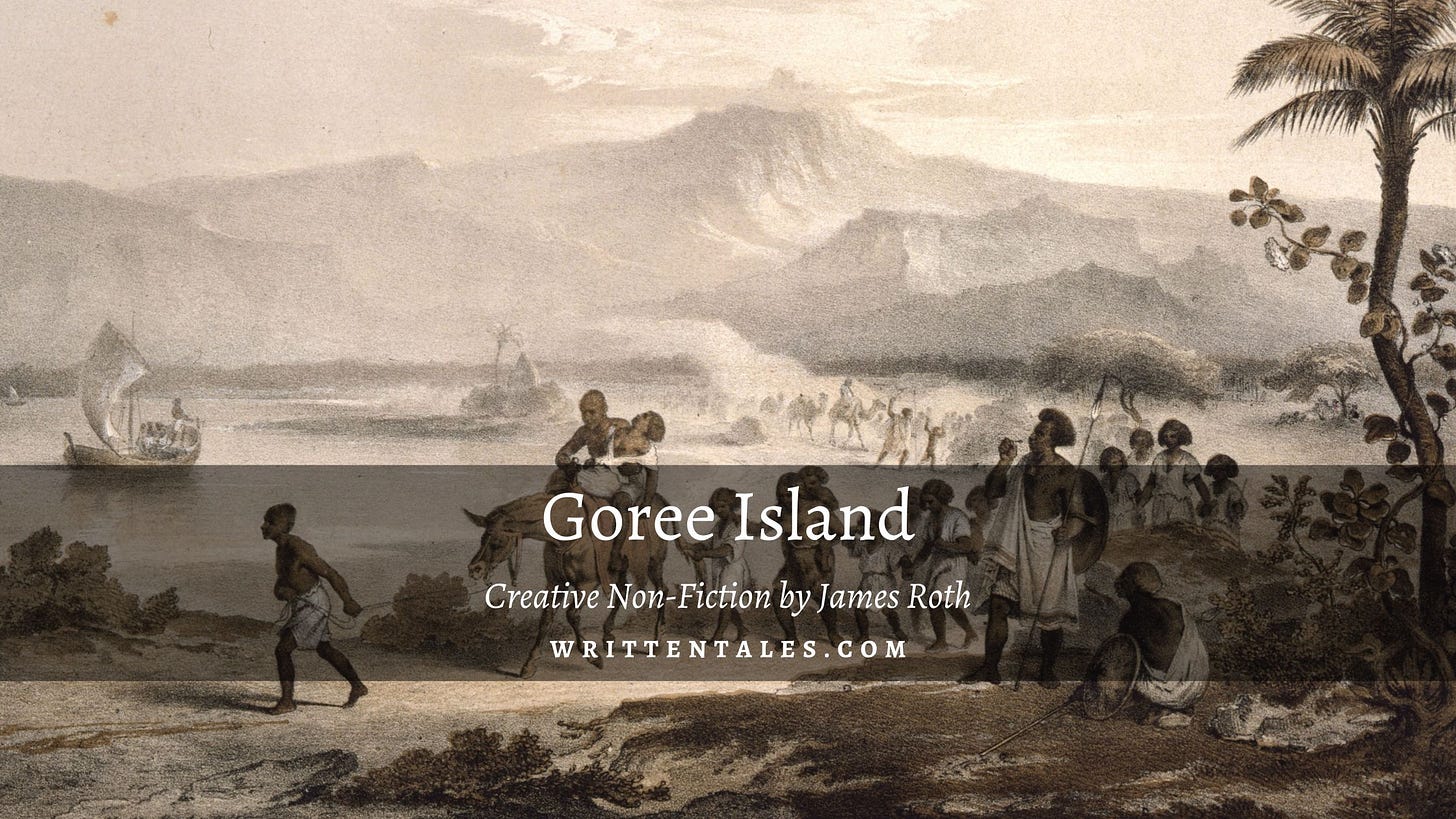You can purchase Written Tales Magazine in print or digital format or become a paid subscriber and download your favorite editions. To view our upcoming stories & poems, please visit our publishing schedule calendar.
I disembark from the ferry and am immediately met by souvenir hawkers selling tambourines, bracelets, and handwoven wicker baskets.
"Authentic Senegalese," a hawker tells me.
I walk past him and join a tour group, and am led to the House of Slaves.
The tour guide is a proud man, robust; his voice is a sonorous baritone.
"Here is where the Africans were kept,” he says. “They were divided into three groups, a cell for each—men, women, and virgins. And there is the Door of No Return.”
As he lectures, a few tourists raise a phone to take a photo of the Door of No Return, a hole in a stone wall that the Africans walked through to board ships that sailed across the Atlantic. Goree Island is the western most point of Africa, the shortest distance to the Americas.
"No photos!" the tour guide chides. "Listen!"
The tourists put away their phones, looking like scolded schoolchildren.
The guide finishes his lecture. He adds, "Any gratuities are welcome." He holds out a metal cup.
A few tourists put franc notes in the cup before taking photos of the Door of No Return.
I leave the House of Slaves and wander along a flagstone pathway, passing a boutique hotel, from which laughter issues from a cafe in a courtyard, and come to a bronze statue that shows two Africans, a man and woman, in chains, weeping. Tourists stand before it, smiling, and take selfies.
James Roth, an English Language Fellow in the U.S. State Department's EFL Program, is a writer of fiction and nonfiction. His work has appeared in several magazines and journals. His first novel, “The Opium Addict,” is forthcoming. A second novel, “A Prayer for My Daughter.” You can view more of his work at jamesroth.org




